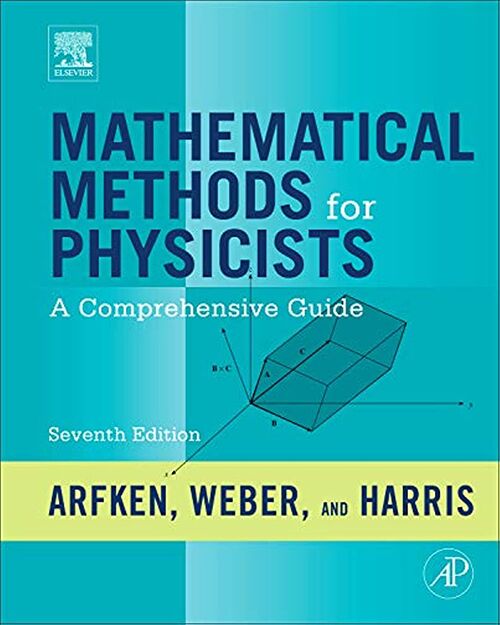Mathematical Methods for Physicists continues to provide all the mathematical methods that aspiring scientists and engineers are likely to encounter as students and beginning researchers. This bestselling text provides mathematical relations and their proofs essential to the study of physics and related fields. While retaining the key features of the 6th edition, the new edition provides a more careful balance of explanation, theory, and examples. Taking a problem-solving-skills approach to incorporating theorems with applications, the book’s improved focus will help students succeed throughout their academic careers and well into their professions. Some notable enhancements include more refined and focused content in important topics, improved organization, updated notations, extensive explanations and intuitive exercise sets, a wider range of problem solutions, improvement in the placement, and a wider range of difficulty of exercises.
 Mathematics: A Discrete Introduction
Mathematics: A Discrete Introduction  Probability: Theory and Examples
Probability: Theory and Examples Mathematical Methods for Physicists: A Comprehensive Guide
Original price was: $89.99.$19.99Current price is: $19.99.
-78%13 reviews for Mathematical Methods for Physicists: A Comprehensive Guide
You must be logged in to post a review.














Update 12/23/2017:
After finishing the semester, the book seemed to hold up well. It is still intact though the cover is now a bit bent. I did not travel to often with it and the bends in the soft cover mostly came from when I did do the traveling. I have put clear contact paper on a number of my soft covers which helps them stay sturdy, and I did not get the chance to put the contact paper on this book, so it likely would have held up even better with that added protection. As far as the content, I found the writing to be rather dry. However, reading the text was still useful and there are numerous practice problems, a few even with answers given. The course I took covered complex integration, series solutions of differential equations, integral equations, orthogonality, Green's functions, and group theory. I found Mary Boas' Mathematical Methods in the Physical Sciences to be helpful in my course, as well. It covers many of the same topics as this book and Boas' book often covered the topics more clearly, so if you have the extra cash to purchase Boas' book or if you can find a PDF copy of it, I would highly recommend that book in addition to this one.